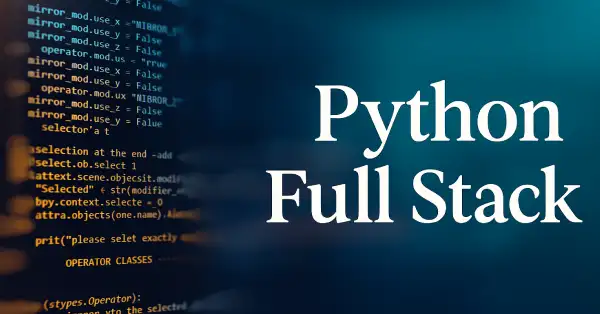Top Skills You’ll Master in a Python Full Stack Course
The demand for full stack developers is rising rapidly as companies look for professionals who can handle both frontend and backend development. Enrolling in a Python course gives you the right mix of technical and practical knowledge to build modern applications. Whether you are a fresher or a working professional, mastering these skills can unlock exciting opportunities in the IT industry.
In our previous blog, we discussed a roadmap to becoming a skilled Python full stack developer. Building on that foundation, this article shifts the focus to the essential tools and technologies you’ll encounter along the way, giving you a clear picture of what you’ll be working with throughout your full stack learning journey.
Key Skills You Develop in a Python Full Stack Course
A Python full stack development course is designed to equip you with all-round development knowledge. From learning Python fundamentals to mastering frameworks, databases, and cloud deployment, you’ll gain the complete skill set needed to handle real-world projects from start to finish.
-
Proficiency in Python Programming
Every journey starts with Python itself. You’ll build a strong foundation in coding by learning Python syntax, object-oriented programming, and essential libraries. These skills allow you to solve real-world problems and write clean, efficient code that forms the backbone of your applications.
-
Frontend Development Skills
A full stack developer must build smooth, user-friendly interfaces that create a lasting impression. With HTML5, CSS3, and JavaScript, you’ll learn how to design responsive and interactive websites. The course also introduces frameworks like React.js or Angular, enabling you to build scalable applications that work seamlessly across devices.
-
Backend Development with Django and Flask
The backend is where an application’s logic truly lives. In the course, you’ll gain expertise in Django, known for rapid development, and Flask, a flexible framework for lightweight projects. You’ll also learn to create REST APIs and implement security features like authentication, making your applications both efficient and secure.
-
Database Management and Integration
Every modern web application relies on efficient data storage and retrieval. You will gain hands-on experience with relational databases like MySQL and PostgreSQL, along with NoSQL technologies such as MongoDB. By writing queries and designing schemas, you’ll learn to manage large volumes of data and build scalable, data-driven applications.
-
Version Control and Collaboration
In professional IT environments, collaboration is essential. By mastering Git and GitHub, you’ll learn how to track code changes, create versions, and merge updates without conflict. These tools not only make teamwork smoother but also allow you to showcase your projects to employers in a professional way.
-
Cloud Deployment and DevOps Basics
Building an application is just the beginning—deploying it successfully is equally important. You’ll gain hands-on experience deploying projects on AWS or Azure, containerizing them with Docker, and automating updates with CI/CD pipelines. These cloud and DevOps skills ensure you are ready for real-world IT demands.
-
Industry-Relevant Skills for Career Growth
Beyond technical expertise, the course also helps you build problem-solving, teamwork, and debugging skills. If you are searching for an IT course in Bangalore, choosing Python full stack training can give you a career advantage, as the city offers excellent opportunities in software and web development.
Conclusion
A Python full stack course equips you with end-to-end skills—from frontend design to backend logic, database management, version control, and cloud deployment. With this knowledge, you’ll be prepared to take on real-world projects and step confidently into your career as a full stack developer. For more details or to enroll, contact us.






